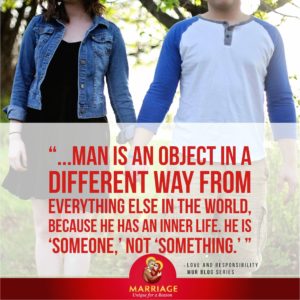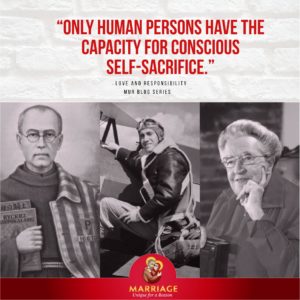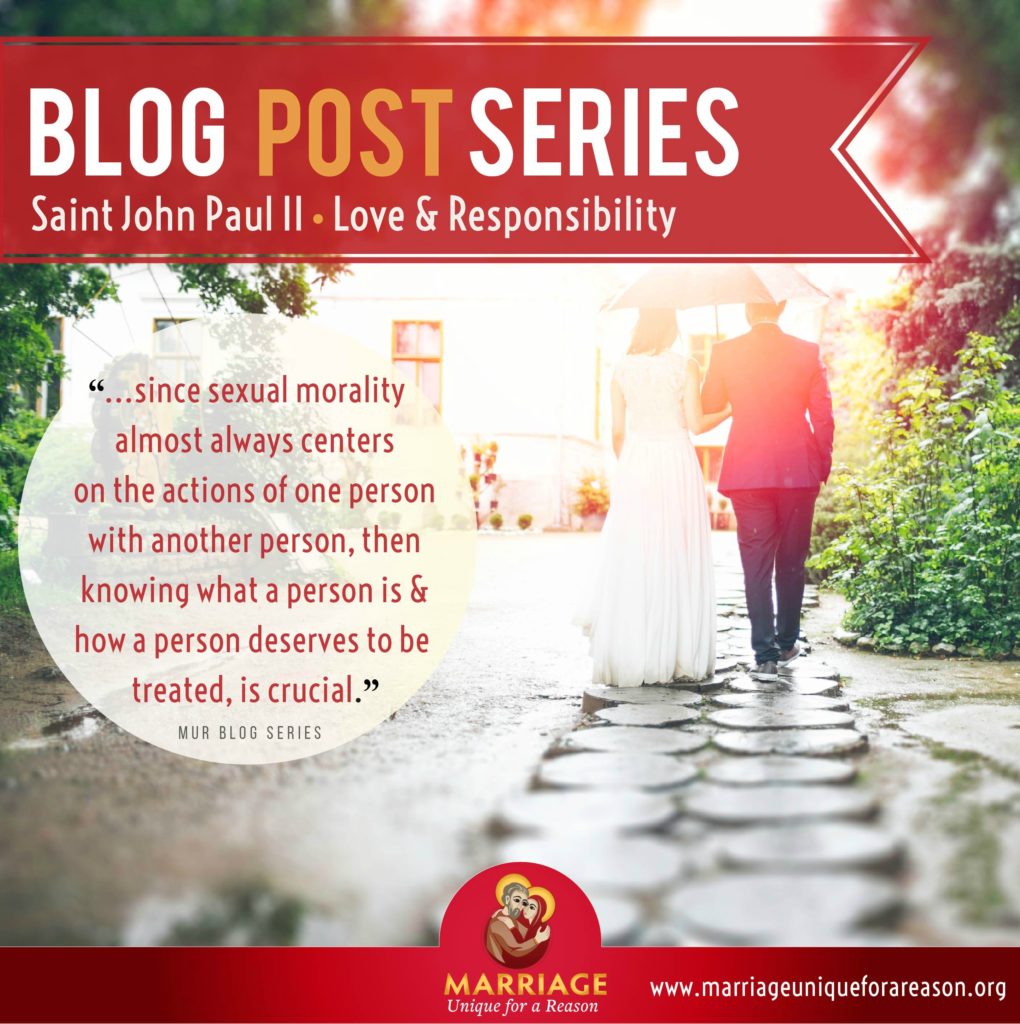As mentioned in the Introduction, Karol Wojtyla (St. John Paul II) is interested in what (who) the human person is. What makes us human? Are there ways of acting that are “less” or “more” human? How do we know?
Person as Subject and Object:
The first section of Love and Responsibility is entitled “The Person and the Sexual Urge,” and the first topic is the person as both the subject (do-er) and the object (done-to) of actions. If I hug you, then I am the subject of that action, and you are the object. That does not make you an object in the sense that I have dehumanized you (we’ll talk about that later), but simply is a way of saying that “every subject also exists as an object, an objective ‘something’ or ‘somebody.’”[i]
Man as ‘Someone’ Not ‘Something’:
But man* is an object in a different way from everything else in the world, because he has an inner life. He is “someone,” not “something.” The term “person” developed out of a desire to express this difference.  Animals, for all their individual quirks and affections, are not persons. A person—and here Wojtyla uses Boethius’s definition of “an individual being of a rational nature”—has a spiritual character. He has an inner life that centers around truth and goodness.[ii]
Animals, for all their individual quirks and affections, are not persons. A person—and here Wojtyla uses Boethius’s definition of “an individual being of a rational nature”—has a spiritual character. He has an inner life that centers around truth and goodness.[ii]
It is this inwardness that makes it even possible to talk about ethics. A person has the power of self-determination. He can choose. “No one else can want for me. No one can substitute his act of will for mine,” writes Wojtyla. [iii]
Self-Sacrifice Found in Human Witness:
Often the most amazing stories we hear and share are stories of people who refuse to want or choose something, even their own life, over another value that they hold dear. For example, St. Maximillian Kolbe wanted life for another prisoner over his own. Or consider the book and movie “Unbroken,” where Louie Zamperini survives a plane crash, floats on the sea 47 days, and suffers in a series of prisoner-of-war camps, but never gives up his desire to live. Or remember Corrie ten Boom, who hid many Jewish people in her home in WWII, knowing that at any moment she could be caught. Only human persons have the capacity for conscious self-sacrifice.
be caught. Only human persons have the capacity for conscious self-sacrifice.
A person’s capacity to freely choose an action is the foundation of all ethics. When the object of a person’s action—that which is directly affected by what a person does—is another person, how much more important it is to know whether that action is good or evil. And since sexual morality almost always centers on the actions of one person with another person, then knowing what a person is, and how a person deserves to be treated, is crucial.
*I’m using “man” in its inclusive meaning of “human being, male or female.” It’s handy, less wordy, and conveys an idea of the common nature that we all share.
Click here to read the latest (all) –> Love and Responsibility Blog Series
[i] Wojtyla, Karol. Love and Responsibility (San Francisco: Ignatius Press, 1993), p. 21.
[ii] Ibid, p. 23.
[iii] Ibid, p. 24, emphasis original.

Leave a Reply